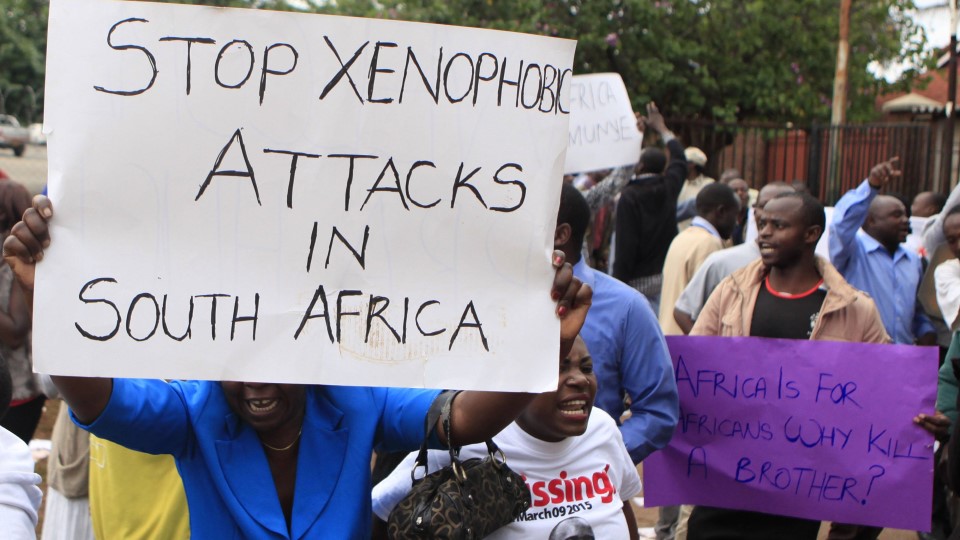South Africa: Social networks allow hateful advertisements

Facebook, YouTube and TikTok have allowed advertisements on their platforms that contained “extremely hateful” and violent messages – although such content actually violates their policies. All ten adverts submitted in a test were approved to be published on all three platforms. The human rights organisation, Global Witness, conducted the test together with the South African civil rights organisation, Legal Resources Centre.
The ads were designed on the basis of real, circulating content and called for massive xenophobia among other things as Global Witness reports: For example, police were urged to kill illegal immigrant foreigners in the ads, and immigrants were also characterized as a “disease” or called for violence against them. The advertisements were drafted in English, Afrikaans, Xhosa and Zulu.
“With rising tensions over the last couple of years and in the lead up to an important election year for South Africa in 2024, we are deeply concerned that social media platforms are neglecting their human rights responsibilities here,” criticizes Sherylle Dass, Regional Director at the Legal Resources Centre. History has shown that social media campaigns can lead to violence in the real world. Platforms must now take steps to protect means of existence and life in the future.
No one saw the hate ads: After being approved, the human rights activists withdrew the advertisements before they were published.
Different countries, same results
As of now, the organisation has conducted more than ten similar tests across the globe to research how social media companies can combat messages of hate online. Among other countries, the tests were made in Brazil, Ethiopia, Ireland, Kenya and Myanmar. “The findings each time have shown that there are glaring holes in how these companies detect, block and remove hate from being spread across their platforms,” the organisation writes.
The tests in Kenya were conducted shortly before the elections in August 2022. As a test, Global Witness submitted advertisements to Facebook that clearly violated the platform’s community standards in terms of content. Among other things, specific ethnic groups were compared to animals – with a call to beheading these groups. This content was also based on examples of actual hate speech that was already in circulation. The advertisements were drafted in both the official language Swahili and English.
The platform had only objected to the English-language adverts – however, it was not because of the content, but rather due to linguistic flaws. After some small corrections, they were accepted. Meta vowed to improve after this test was conducted.
The advertisements that were submitted to Facebook in Brazil in August 2022 – two months before the presidential election – were also all approved. They contained false information such as an incorrect election date and discredited the electoral process. Subsequently, Meta announced further control measures.
Hannah Sharpe, Digital Threats Campaigner at Global Witness, showed her disappointment from the current results: “It is not a one-off but a repeated failure to enforce their own policies on hate speech and the incitement of violence on their platforms.” It should be at least expected that the platforms comply with their own guidelines. "Having them on paper is meaningless unless they are actively enforced. […] Failure to enforce these policies has real-world impacts and costs lives,” Sharpe continued.
Heated atmosphere
United Nations experts observed South Africa inmid 2022 as "on the precipice of explosive xenophobic violence". At that time, a group of independent United Nations experts reported of escalating violence against foreigners in the country. They warned of increasing xenophobia, racism and hate speech against migrants, refugees, asylum seekers as well as other minorities. The African Centre for Migration & Society reports of 15,093 displacements motivated by xenophobia, 3040 looted shops and 218 deaths since 2014.
Some political parties in the country use this sentiment centrally in their strategy for election campaigns, Global Witness said. Xenophobia, especially against low-income African and Southeast Asian migrants and refugees, has been a characteristic of South African politics for many years.
“Anti-migrant discourse from senior government officials has fanned the flames of violence, and government actors have failed to prevent further violence or hold perpetrators accountable,” the United Nations experts warned. Perpetrators could generally expect impunity for xenophobic rhetoric and violence.
Companies confess to being prone to errors
Global Witness confronted the operating companies of the platforms with the results of their tests from South Africa. Facebook operating company, Meta and TikTok explained that the submitted advertisements went against their guidelines and advertisement content that supposedly went through multiple review instances. They explained that the submissions may have still been allowed due to their control systems not being perfect – machines and humans can make mistakes. TikTok promised to look into the results. The moderators of content spoke Afrikaans, Xhosa and Zulu.
YouTube operator Google did not respond to Global Witness’ inquiry. (hcz)